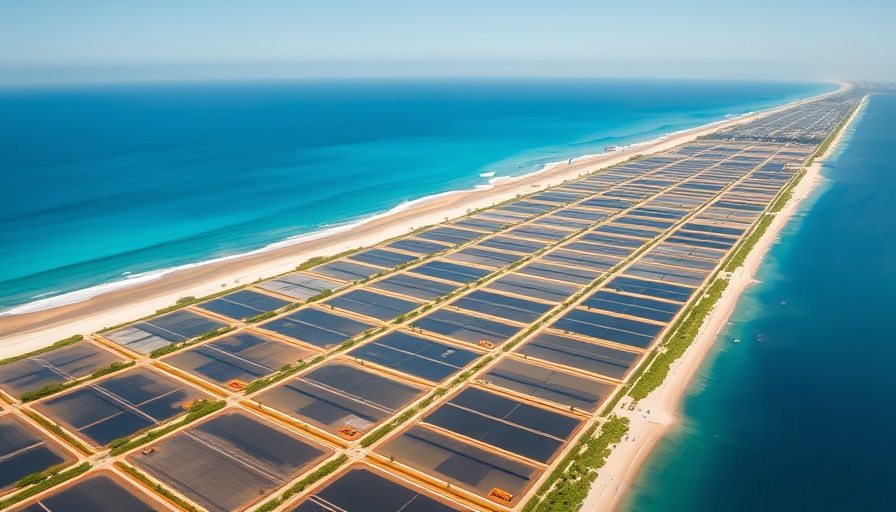
Unlocking Indonesia's Blue Economy Potential
Indonesia, an archipelago of over 17,000 islands, holds enormous promise within its aquaculture sector, particularly as it seeks to transition to a sustainable blue economy. However, experts gathered at the Unlocking Capital for Sustainability forum highlighted the urgent need for technical assistance and improved financial backing to turn this potential into reality. As Indonesia aims to raise the blue economy's contribution to its GDP to 15% by 2045, the challenges currently plaguing the sector cannot be overlooked.
The Financial Hesitation Around Aquaculture
One major obstacle facing this growth is the perception of aquaculture as a high-risk investment. Financial institutions are reportedly underperforming in lending to this sector, shying away from promising projects due to perceived risks. It was pointed out that the challenges are compounded by inconsistent regulatory support, which leaves investors with financial uncertainty.
The Importance of Reliable Data
Experts assert that a fundamental barrier to growth is the lack of reliable business data in the aquaculture industry. Only through verified data can investors gain confidence. As appraised by Guntur Mallarangeng, founder of aquaculture tech startup Delos, clarity from the government on blue economy initiatives is vital for attracting investors. With a concrete national roadmap projected to reach a value between US$1.33 - $1.36 trillion, due diligence could facilitate funding that can help entrepreneurs scale their operations.
Case Study: EFishery's Impact
The case of agritech startup EFishery, which was alleged earlier this year to have inflated its revenue figures, reflects the deep-seated concerns in the market. It highlights that transparency and concern over misinformation can quickly erode investor confidence, making it imperative that businesses operate with integrity. Ensuring that companies present accurate portrayals of their operations and financial standings is crucial for securing much-needed funding.
Bridging the Gap: Communication is Key
At the UCFS forum, Fred Puckle Hobbs pointed out that Indonesia's shrimp and seaweed sectors possess substantial growth potential. However, businesses must communicate effectively and show how their products can compete internationally. Comparative examples, such as Indonesia’s shrimp against similar products from India and Ecuador, demonstrate that despite comparable quality, domestic aquaculture has not penetrated markets effectively. Thus, businesses must understand and convey the true value of their produce to investors.
The Future: Is the Hype Justified?
The potential around Indonesia's blue economy cannot be overstated, but it has been met with skepticism. As highlighted at the forum, there exists a significant disconnect between the reality of business operations and their perception, leading to investor hesitation. Developing a reassuring narrative focused on sustainability could generate interest among eco-friendly investors and financiers.
With Indonesia's upcoming initiatives, including the world's first publicly-offered sovereign blue bond, the focus now shifts to establishing a responsible framework for capital allocation. This commitment signifies a growing recognition of the role that sustainable finance can play in building profitable aquaculture industries.
Call to Action: Sustainable Investment for Economic Growth
The pathway towards a robust aquaculture sector in Indonesia lies in ensuring that financial institutions become proactive participants. Investors and NGOs should advocate for sustainable investment practices not only to drive profitability but also to reinforce environmental conservation. Together, we must create an ecosystem that promotes responsible consumption, encourages innovation in sustainable practices, and fosters economic growth aligned with the blue economy's goals.
 Add Row
Add Row  Add
Add 



Write A Comment